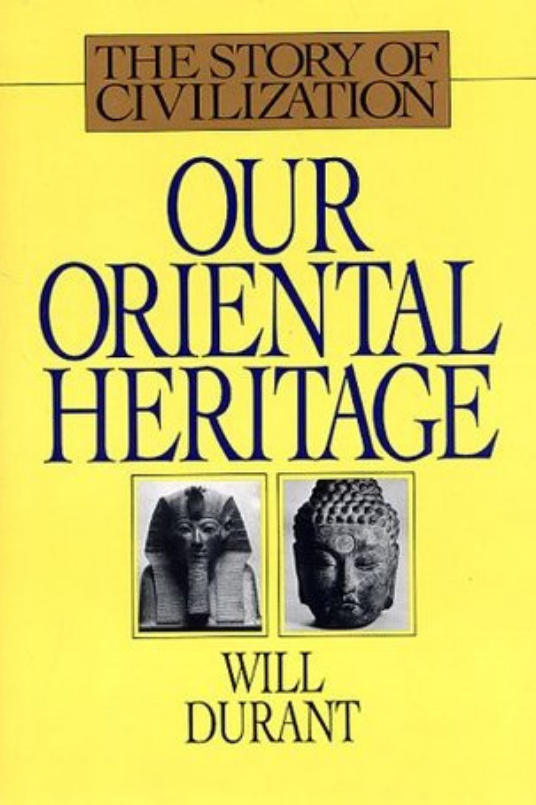Yet, if you (like me) have been reading too much about business and realized that you know little to nothing about history, then reading this series on Civilization by Will Durant might be a great idea.
This is the first of 11 in the series. And all are about 1000 pages or more. This means it will take a while to finish all of these.
Flow: 3/5
Actionability: 3/5
Mindset: 5/5
Some of My Highlights:
- “For when fear is overcome, curiosity and constructiveness are free, and man passes by natural impulse towards the understanding and embellishment of life.”
- “It is when man settles down to till the soil and lay up provisions for the uncertain future that he finds time and reason to be civilized.”
- “For civilization is not something inborn or imperishable; it must be acquired anew by every generation, and any serious interruption in its financing or its transmission may bring it to an end.”
- “Let us, before we die, gather up our heritage, and offer it to our children.”
- “If man began with speech, and civilization with agriculture, industry began with fire.”
- “Above all, he made himself a stick. It was a modest invention, but its uses were so varied that man always looked upon it as a symbol of power and authority…”
- “The ingenuity of primitive men probably equaled -perhaps it surpassed- that of the average modern man; we differ from them through the social accumulation of knowledge, materials and tools, rather than through innate superiority in brains.”
- “Communism brought a certain security to all who survived the diseases and accidents due to the poverty and ignorance of primitive society; but it did not lift them out of that poverty.”
- “It was a great moral improvement when men ceased to kill or eat their fellowmen, and merely made them slaves.”
- “…he does not love society so much as he fears solitude.”
- “Above all, war dissolved primitive communism and anarchism, introduced organization and discipline, and led to the enslavement of prisoners, the subordination of classes, and the growth of government. Property was the mother, war was the father, of the state.”
- “Men decided that it was better to pay taxes than to fight among themselves; better to pay tribute to one magnificent robber than to bribe them all.”
- “As in our own days, there was absolute equality before the law – whenever the contesting parties had equal resources and influence.”
- “‘No people, ancient or modern,” said Max Müller, ‘has given women so high a legal status as did the inhabitants of the Nile Valley.'”
- “‘Give thy heart to learning, and love her like a mother,’ says one edifying papyrus, ‘for there is nothing so precious as learning.”Behold,’ says another, ‘there is no profession that is not governed’ it is only the learned man who rules himself.'”
